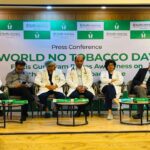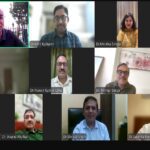Vigilance and precautions are the need of the hour to prevent the aftermath of illnesses that follow floods
New Delhi, August 20, 2018: With over 250% more rain than normal between 8th and 15th August 2018, the state of Kerala is battling the worst floods in its history. More than 300 people have lost their lives and many more have been left stranded. Across the state, relief teams are running against time to ensure food and medicines reach those in need. Many have pitched in to the rescue efforts through their presence well as monetary contributions.
Flood waters not only take a toll on human life, but also cause an aftermath of illnesses. The health effects of floods are both immediate and long term. One of the most pertinent problems of flooding is the water-borne and vector-borne diseases such as malaria, dengue, leptospirosis, dysentery, typhoid, and cholera. While the government and health care agencies do put in place certain mechanisms to tackle these, precautions are of utmost importance.
Speaking about this, Padma Shri Awardee, Dr KK Aggarwal, President, HCFI, said, “The outbreak of infectious diseases and their transmission can occur within days, weeks or even months after the onset of floods. One of the most common health risks during and after flooding is the contamination of water sources. Standing water becomes a breeding ground for mosquitoes, thus increasing the chances of vector-borne diseases. One infection that can take on an epidemic form after flooding is leptospirosis. Flooding helps in facilitating the spread of the organism due to increase in the number of rodents. These shed large amounts of leptospires in their urine which mixes with the flooded water. Apart from this, receding waters also bring back mosquitoes with them. Some other devastating after effects of floods include drowning, injuries due to falling inside manholes, and electrocution from submerged and fallen power lines or live wires which can electrically charge the standing water.”
While developed countries have adequate coping mechanisms in place, the most affected are the low-income countries. Some reasons for this include large population, existing health conditions, and lack of proper health infrastructure.
Adding further, Dr Aggarwal, who is also the Vice President of CMAAO, said, “It is important to have certain coping mechanisms in place, both at the governmental and individual levels, to prevent diseases from spreading. At the governmental level, it is important to improve the level of primary health care delivery. Healthcare workers should be trained appropriately such that they can identify and assess any risk factors and take immediate action. There should also be a system in place to educate people on hygiene and hand washing techniques. The government should also ensure that adequate quantity of safe water, good sanitation facilities, and appropriate shelters are provided to the victims to keep them safe from diseases.”
Some tips from HCFI to cope during floods at an individual level.
- Do not walk or wade through floodwater because it contains sewage and debris. This is more so in the case of those who are vulnerable to infections such as people living with diabetes, children, pregnant women, and the elderly.
- Do not expose broken skin or any wounds to floodwater to avoid the risk of getting infected. Additionally, clean these wounds with clean water and get a dressing done.
- It is imperative to wash your hands with soap and water if you happen to come into contact with damaged material, floodwater or mud; or after going to the washroom. Do not touch food with dirty hands.
- Dispose of any food material, medicines and other edibles if they have come into contact with floodwater. Using these can make you susceptible to infections.
- If you have tinned food, make sure to wash the tin and sanitize it in a bleach solution. Consume the contents at the earliest.
- Check with the local authority about any possible contamination of local water supply. Make sure to boil water before consumption.
- Use mosquito repellants and nets abundantly to avoid catching vector-borne diseases. Do not throw garbage on the street as this can attract rodents.







